
The development situation of Vietnam's cultural industries
Resolution of the 9th Central Conference, 11th term (2014) identifies and develops cultural industries. (CNVH) is one of the important tasks to build and develop Vietnamese culture and people in the new period. The 13th Party Congress emphasized: "Urgently deploy focused development of the cultural industry and cultural services on the basis of identifying and promoting the "soft power" of Vietnamese culture, effectively applying the values, quintessence and new achievements of world culture, science , engineering and technology" (1) .
Recognizing the importance of cultural industries to socio -economic development, on September 8, 2016, the Prime Minister issued Decision No. 1755/QD-TTg approving the Strategy for the development of cultural industries in Vietnam to 2020, with a vision to 2030, which affirmed: Cultural industries are an important component of the national economy. The State creates favorable conditions to attract maximum resources from businesses and society to develop cultural industries.
At the National Conference on Breakthroughs in Science, Technology, Innovation and National Digital Transformation on January 13, 2025, Prime Minister Pham Minh Chinh emphasized: One of the key tasks to implement Resolution No. 57-NQ/TW is to apply science, technology, innovation and digital transformation (DCT) in important sectors and fields of the country, such as culture, resources, environment, transportation, healthcare, e-commerce, etc. The Prime Minister paid special attention to promoting DCT to develop the cultural industry and entertainment industry; build and develop high-quality digital cultural products; promote the construction of a database on culture and digital cultural heritage; create conditions for people to enjoy culture; internationalize Vietnam's cultural identity; Vietnamize the quintessence of world culture.
In recent times, Vietnam's cultural industries have made significant progress, gradually becoming an important service industry, making a positive contribution to socio-economic development. In the period 2016 - 2018, 12 cultural industries contributed revenue of about 8.081 billion USD (equivalent to 3.61% of GDP); in 2021, it reached 3.92% of GDP; in 2022, it increased to 4.04% of GDP. The production value of cultural industries in the period 2018 - 2022 is estimated at 44 billion USD (2) . “In the period 2018 - 2022, the number of economic establishments operating in the cultural and industrial sectors increased quite high at 7.2%/year (currently there are over 70,000 economic establishments). The labor force in the cultural and industrial sectors increased quite rapidly at 7.4%/year; currently attracting about 2.3 million workers, accounting for 4.42% of the total labor force of the entire economy” (3) .
Cultural products are increasingly rich and diverse, meeting the needs of domestic and international audiences. Films such as Ngo Thanh Van's "Hai Phuong", Tran Thanh's "Bo Gia", Ly Hai's "Lat Mat" series, etc. are not only successful in the domestic market but also screened in many countries around the world. Some Vietnamese films have won awards at international film festivals, such as the film "Inside the Golden Cocoon" by young director Pham Thien An, which won the Golden Camera Award at the 2023 Cannes Film Festival for Best Debut Feature Film. The documentary "The Children in the Mist" by young director Ha Le Diem was awarded the Best Director Award and the Special Jury Award for Debut Film at the 2023 Amsterdam International Documentary Film Festival, and entered the top 15 prestigious Oscar awards for documentary films (4) . In the music industry, a number of music shows have attracted a large audience, such as “Anh trai vuon ngan cong gai”, “Anh trai say hi”, etc. The explosion of digital platforms, such as YouTube, Netflix, Zing MP3, TikTok, etc., has created a wide open market for cultural products. Consumers increasingly have easy access to online art products, music, movies, books, newspapers, and at the same time, the development of online platforms helps Vietnamese cultural products easily reach international audiences. International cultural events, such as the Hanoi International Film Festival, International Book Exhibition, etc., have attracted the attention of experts and global audiences, enhancing the value of Vietnam's cultural brand.
The exploitation of traditional cultural values to create cultural products is increasingly gaining attention, reflected in many cultural industries from music, cinema, ... to cultural tourism. This trend contributes to preserving traditional cultural values, spreading the "soft power" of Vietnamese culture, and at the same time strengthening the "resistance" of national culture.
Opportunities and challenges for the development of Vietnam's cultural industries
Regarding opportunities , to develop the country quickly and sustainably, it is necessary to mobilize the combined strength of resources, of which the cultural industry is an important endogenous resource. Digital transformation has a strong, multi-dimensional impact, creating many great opportunities for fields, including the cultural industry; not only bringing economic values but also contributing to promoting the "soft power" of Vietnamese culture in the international arena, promoting the process of cultural exchange and acculturation between Vietnam and other countries:
Firstly, expand the market for cultural products, thereby improving the consumer experience.
Digital transformation helps expand the market for cultural products to global consumers, especially through online platforms such as YouTube, Spotify, Netflix, Amazon Kindle, TikTok, etc. A huge market for cultural products is created, not limited by geographical space, released and broadcast globally. The song "Em cua ngay hom qua" by Son Tung M-TP, "See tinh" by Hoang Thuy Linh, etc. are known to the international public through platforms. The publishing industry has also changed dramatically with the development of e-books and online reading platforms, helping Vietnamese literary works and Vietnamese video games easily reach readers and players globally, creating opportunities to promote the consumption of cultural products and services quickly and conveniently.
Cultural products are not simply passively consumed works but become deeply interactive experiences with users through advanced technologies, such as virtual reality (VR), augmented reality (AR), and interactive online services. Services such as VieON and FPT Play have become prominent channels for distributing movies and television programs in Vietnam. Art performances, concerts, and theater programs are streamed online on platforms such as Facebook Live, YouTube, or specialized applications, helping artists connect with global audiences, creating a stable source of income for artists and the art industry. VR and AR technologies open up opportunities for the creation of vivid and attractive cultural products, such as virtual art exhibitions, virtual tours to historical sites and museums, thereby promoting Vietnamese culture and heritage to viewers around the world.
Second, enhance creativity and content innovation.
Digital transformation not only contributes to market expansion but also promotes innovation in the production of cultural products. The application of digital technologies, such as artificial intelligence (AI), big data, blockchain, virtual reality (VR), augmented reality (AR) has opened up new possibilities for creativity, management, production, distribution and consumption of cultural products more easily and effectively. Modern technology helps artists and creators easily use new creative tools, from graphic design, music editing, film production to building digital art products. Software and creative support tools help artists create global products, combining Vietnamese cultural elements with international trends, creating new and attractive products. Artificial intelligence and big data help creators and manufacturers analyze trends and user habits, thereby adjusting products to suit market needs. In addition, AI with the combination of technology and creative arts helps create new works of art, such as movies, music or paintings.
Third, enhance the ability to preserve and promote cultural values.
Digital transformation helps preserve and preserve historical documents and cultural heritage, especially in fields such as folk music, traditional art, ancient architecture, etc. Digitizing cultural heritage is considered a high step in the development of archiving and preserving cultural heritage. This is the process of converting information (sound, image) into binary signals performed by electronic devices such as cameras, recorders, scanners and stored on computers. This process helps protect heritage from threats from natural conditions (climate, weather), time and from humans. Cultural heritage is not only preserved for a long time but also easily accessed, studied, researched and enjoyed flexibly and effectively.
Fourth, strengthen the protection of copyright and intellectual property rights for cultural products.
Blockchain is a technology that stores and transmits information using blocks that are linked together and expand over time. Blockchain technology can help protect copyright and intellectual property rights for cultural products. Blockchain can be easily applied in online intellectual property registration. Currently, copyright exploitation transactions in Vietnam are also increasing. Blockchain helps authors commercially exploit their works through online transactions. Authors can transfer usage rights and copyrights on blockchain through smart contracts. In particular, the use of blockchain in copyright management and tracking helps protect the rights of authors and artists, while reducing copyright infringement.
Five is, building national brands and exporting culture.
Digital transformation opens up great opportunities for developing and promoting national cultural brands. Vietnamese cultural products are strongly promoted through digital media campaigns, online events and social media platforms. This helps to enhance national cultural values, building the country's image in the eyes of international friends.
Social media platforms such as YouTube, Instagram, TikTok, etc. are helping to promote the image of Vietnam and its people vividly and widely. Videos and images of scenic spots, festivals, and cultural heritages are spread globally, attracting the international community to Vietnam. Vietnamese cultural products are easily exported to the world through online platforms; helping to develop the economy, enhance cultural values, and enhance international cultural exchanges.

Regarding challenges , digital transformation brings great opportunities for innovation and expansion of product consumption markets of the industrial and cultural sectors, but also brings many difficulties and challenges:
First, the issue of copyright and intellectual property
Copyright and intellectual property protection is one of the biggest challenges facing the cultural industry in the digital age. Digitalization makes cultural products widely accessible, creating loopholes for easy copyright infringement. Cultural works, especially music, movies, books, and newspapers, are easily copied and illegally distributed on online platforms. The lack of a unified, synchronous system of documents to protect copyright at the national and international levels makes it difficult for artists and creators to protect their rights. Many Vietnamese cultural products, despite their good quality, still suffer losses in revenue and reputation due to unofficial copying and distribution.
Second, lack of high quality human resources
The cultural industry requires its workforce to not only have creative abilities but also a good understanding of digital technology to take advantage of new creative tools. However, at present, human resources in the Vietnamese cultural industry are still lacking and have not been properly trained. Universities and colleges that train in arts and cultural industry have not met the needs of the market.
With the rapid development of digital technology, industries such as graphic design, software development, digital marketing and content production management need professionals with modern skills and knowledge. However, the training of high-quality human resources in this field has not received due attention.
Third, competition from international cultural products
Vietnam's cultural industry not only has to compete with domestic products but also faces fierce competition from international cultural products, especially from major cultural industries such as Hollywood, Korea (K-pop, TV series), Japan (anime)... With the ability to produce on a large scale and with high quality, international cultural products can easily access the Vietnamese market, dominating in attracting consumers. This requires Vietnamese cultural products to strive to compete by improving quality, diversifying content and exploiting cultural elements typical of the nation.
Fourth, the issue of preserving and promoting national cultural values
The popularity of global cultural products can fade national cultural identity when traditional cultural values are not properly preserved and developed. Creative works with strong Vietnamese cultural identity will be affected by the introduction of foreign cultural elements, reducing their uniqueness and national identity. Digital technology helps promote and disseminate cultural products quickly, if not properly managed and adjusted, traditional cultural values will be "dissolved" in the global cultural flow, losing their inherent characteristics.
Fifth, lack of infrastructure and investment
The technical infrastructure to support the cultural industries in Vietnam is still lacking and weak. Cultural companies and organizations have difficulty accessing advanced technology, modern production equipment, and high-quality distribution platforms. In addition, investment in companies and creative projects in the cultural sector is limited compared to other economic sectors. Cultural products, especially in the fields of cinema, music, and online games, need large investment sources to develop, but it is still difficult to mobilize capital and attract investors.
Sixth, the issue of information management and control
In the digital age, information management and control is a difficult problem. With the explosion of social media platforms, information about cultural products can spread very quickly, but can also be easily distorted or misled. Controlling content and quality in accordance with ethical standards and legal regulations is a big challenge for management agencies. Online platforms do not always comply with legal regulations on copyright, advertising, or content standards. This increases risks for producers and authors, and makes it difficult to manage the digital cultural product market.
Seventh, difficulties in developing markets and audiences
Building and maintaining a sustainable market for domestic cultural products still faces many difficulties because audiences tend to prefer international cultural products, especially movies, music and television programs. Changing cultural consumption habits of audiences require Vietnamese creators and producers to provide quality products that suit their tastes.
Solutions for developing cultural industries in the context of digital transformation
In the context of digital transformation, to take advantage of opportunities and overcome challenges, the IT industry needs to deploy a number of appropriate solutions:
First, perfect the legal system and copyright protection.
To To build and perfect the legal system to contribute to the protection of copyright and intellectual property in the digital age, the Government needs to strengthen measures to control and handle copyright infringement, support artists and creators to protect their works from illegal copying. It is necessary to apply new technologies such as blockchain to track and ensure copyright rights for authors and producers.
Second, invest in education and training of creative human resources.
The IT industry needs a creative and technologically savvy workforce for sustainable development. Therefore, educational institutions need to improve training programs, review and tighten the recruitment of teaching staff to meet the requirements of IT industries in the digital era. Industries and professions such as graphic design, creative software development, digital content management, digital marketing, and copyright protection need to be focused on.
Third, strengthen cooperation between cultural and technological industries.
There is a need for close coordination between the cultural and high-tech sectors. Technology companies and creative organizations need to cooperate to develop new cultural products, apply modern technologies to create new and attractive experiences for consumers; take advantage of digital platforms to develop and distribute products, and expand markets.
Fourth, encourage innovative production and business models and promote public-private partnership.
Creative production and business models such as online music, film, book and art distribution platforms or crowdfunding models will help artists and creators have stable financial resources, expand the scope of influence of cultural products, thereby building a community of people who love Vietnamese cultural products. The government can support these initiatives through preferential policies, creative investment funds and public-private partnerships (PPP). Financial support, facilities and technology for creative projects will help the cultural industry develop more strongly and sustainably.
Fifth, develop and promote national cultural brands.
To enhance the value of Vietnamese culture in the international arena, it is necessary to have strong communication strategies, such as international communication campaigns, online cultural events and cooperation with international organizations using digital platforms to bring Vietnamese cultural products closer to the world, which will help enhance the image and value of Vietnamese culture. Cultural products need to be spread to the world market but must maintain a brand that is imbued with Vietnamese cultural identity.
Sixth, apply technology to improve the production and distribution process of cultural products.
Digital technology also helps improve the distribution, marketing and sales processes of cultural products. Technologies such as AI, Big Data and online distribution platforms can help companies in the cultural industry optimize marketing strategies, analyze consumer behavior and personalize customer experiences. Cultural products can easily reach consumers in many countries through online platforms, thereby promoting the strong and sustainable development of Vietnam's cultural industry in the digital age./.
-------------------------
(1) Documents of the 13th National Congress of Delegates , National Political Publishing House Truth, Hanoi, 2021, vol. I, p. 145
(2) See: "Creating a breakthrough to develop cultural industries", Electronic Information Portal of the Ministry of Culture, Sports and Tourism , November 26, 2024, https://bvhttdl.gov.vn/tao-su-dot-pha-de-phat-trien-cac-nganh-cong-nghiep-van-hoa-20241126155333204.htm
(3) See: “Prime Minister chairs National Conference on Development of Vietnamese Cultural Industries”, Government Electronic Newspaper , December 23, 2023, https://baochinhphu.vn/thu-tuong-chu-tri-hoi-nghi-toan-quoc-ve-phat-trien-cac-nganh-cong-nghiep-van-hoa-viet-nam-10223122308174392.htm
(4) See: Mai Lu: "Vietnamese cinema strives to reach international level", Nhan Dan Electronic Newspaper , October 23, 2024, https://nhandan.vn/dien-anh-viet-nam-no-luc-vuon-tam-quoc-te-post838117.html
Source: https://tapchicongsan.org.vn/web/guest/van_hoa_xa_hoi/-/2018/1120302/phat-trien-cac-nganh-cong-nghiep-van-hoa-viet-nam-trong-boi-canh-chuyen-doi-so.aspx



![[Photo] President Luong Cuong attends the 80th Anniversary of the Traditional Day of Vietnamese Lawyers](https://vphoto.vietnam.vn/thumb/1200x675/vietnam/resource/IMAGE/2025/10/09/1760026998213_ndo_br_1-jpg.webp)
![[Photo] General Secretary To Lam visits Kieng Sang Kindergarten and the classroom named after Uncle Ho](https://vphoto.vietnam.vn/thumb/1200x675/vietnam/resource/IMAGE/2025/10/09/1760023999336_vna-potal-tong-bi-thu-to-lam-tham-truong-mau-giao-kieng-sang-va-lop-hoc-mang-ten-bac-ho-8328675-277-jpg.webp)





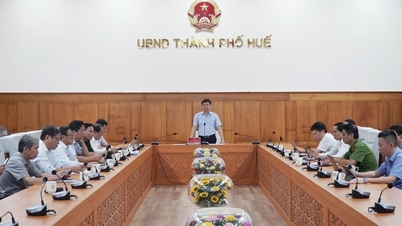

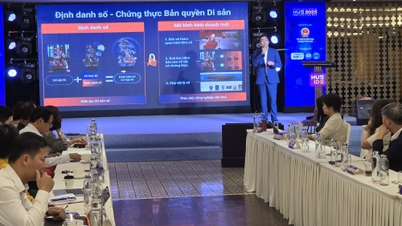
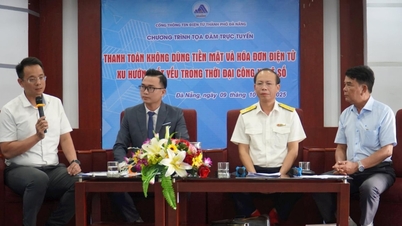





















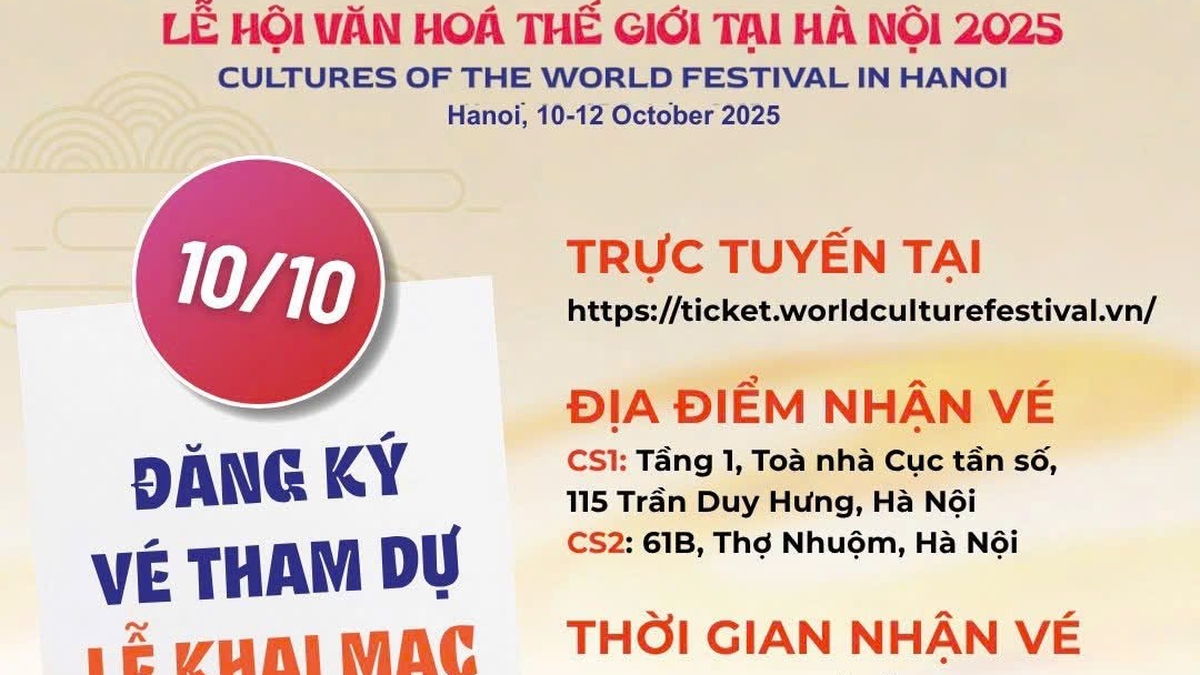

























![[VIDEO] AI version of BSR General Director Nguyen Viet Thang: From the mission of energy shield to the desire to contribute](https://vphoto.vietnam.vn/thumb/402x226/vietnam/resource/IMAGE/2025/10/10/1760062415027_0000371c-f2a1-31a0-38a9-e3de0ece2bbd.jpeg)











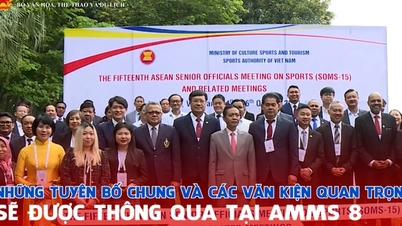










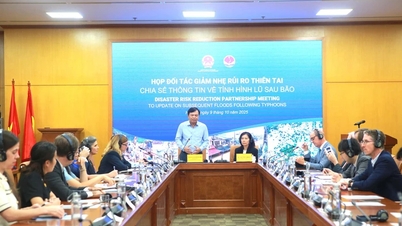



















Comment (0)